- Home
- George R. R. Martin
Knaves Over Queens Page 10
Knaves Over Queens Read online
Page 10
The coronation was regal and beautiful, filled with pomp and spectacle. And then it was over, everyone rising to applaud, then motioned to sit down again as Queen Margaret began her procession back up the aisle.
Foxworthy retook his seat, clapping as softly as possible so as to not pelt the guests with elf shot. Someone turned to smile and wave at him – an old woman in an elaborate hat with white egret plumes with their tips dyed black, perfectly matching her old-fashioned ermine stole. A stole made from incredibly fat, pampered, and drugged-looking live ermines. Foxworthy was not the only joker at the coronation – Lady Ermengarde Arkwright, the Ermine Queen, had managed to weasel another impossible invitation.
Lady Arkwright turned her smoked glasses to the woman two seats over whom Foxworthy immediately recognized as the newspaper astrologer and claimed ace, Lady Mabel Fortescue-Harrison, and the old women began chatting. But between them sat a young woman in a green velvet dress. Not the same dress, but the same shade, and her fair hair had been dyed dark to match her mother’s, making her look like the ghost of Edwina Fisher, whom Foxworthy had seen die. It was not the beautiful tragic actress, but her daughter, Jillian.
It all fell into place. A young woman without a job would be hard pressed to find lodgings in London, especially if she were looking for a place to hide her silver-skinned flying knave of a brother. But Spring-heeled Jack had his lair in Holborn, the same place Lady Arkwright had her townhouse. Had Jillian, another survivor of the Queen Mary, begged the famed eccentric for an attic bedroom? What better eyrie could there be?
This also had to end. It was only due to his joker physiology that Crispin hadn’t broken his neck. Foxworthy rose to his full height, brushing past the ushers motioning him to sit down. He crossed to the Prime Minister, leaned down, and whispered, ‘I’ve found Spring-heeled Jack.’
Churchill whispered into Redcoat’s ear, and they rose and followed Foxworthy, Turing making a snap calculation and joining them. Then there was momentary chaos as the Archbishop motioned for everyone to rise, but Foxworthy was head and shoulders above the crowd and never lost sight of Jillian, who was still boxed in by the two old ladies.
The crowd parted quickly for Foxworthy, then he paused, seeing Wally and Alice looking up at him, waiting, but he loped past them, shaking his head regretfully, and made his way to the trio. ‘Jillian,’ he told her, ‘we know about Francis. We can help.’
‘Captain Flint.’ She looked up at him, brave and defiant as that little girl he’d met only two years ago for him, but seven for her. ‘My brother Francis is dead. We were both there.’
‘No, he’s not,’ Foxworthy stated, ‘and we both know it. You’ve been hiding him in Lady Arkwright’s attic since he escaped the museum.’
Jillian stared up at him. Her mouth dropped open and then she burst into peals of maniacal laughter. ‘You’re wrong. You don’t know how wrong you are. But it doesn’t matter. You’ve found me. My fault for wanting to be a girl just once and wear a pretty summer frock …’
‘What are you talking about, young lady?’ asked Sir Winston who then said to Foxworthy, ‘I thought you said you’d found Spring-heeled Jack?’
‘He has, Prime Minister,’ said Jillian, reaching into her clutch bag. ‘The only trouble is …’ She held up her bag, revealing within it a black leather driving-mask with ruby-tinted lenses. ‘… Spring-heeled Jack …’ she depressed a brass stud and the lenses began to glow, ‘… is Spring-heeled Jill.’
After a long moment of silence, Turing cried, ‘The charwoman! I knew it! You’re the charwoman too!’
‘Yes,’ Jillian admitted, ‘her too.’
Sir Winston remarked, ‘In any case, it appears you’re not resisting arrest. I shall expect a full explanation once we get somewhere more private.’
‘Don’t say anything more, dear,’ advised Lady Arkwright, ‘until I contact my solicitors.’
‘I’m certain that won’t be—’ Sir Winston began until her necklace of fat ermines awoke and bared their teeth.
‘Thank you, Captain Flint.’ Queen Margaret lit her cigarette from his thumb. She had exchanged her coronation gown and the Imperial State Crown for a silk summer dress and diamond tiara. She took a long drag on her cigarette, then exhaled, glancing around the stateroom with the portrait of Peter the Great, looking from Churchill, Redcoat, and Turing to Foxworthy, and finally to Jillian Fisher. ‘If you could,’ the Queen asked, ‘as a favour, one young woman to another, explain things simply to me, from the beginning?’
‘I repair things, ma’am,’ explained Jillian, ‘and sometimes make them better. I was in the radio room with Harry, and he said it was hopeless. The radio was broken and we were all going to die. And then he started crying because he was so scared because of his own transformation, and I was scared too, and I wanted to do something. Then I looked at the radio and I suddenly just knew what I needed to do to make it work again. So I did it and it did.’
Queen Margaret took another puff. ‘Go on.’
‘I didn’t realize that I’d turned my ace. Then we got into London, and there was the quarantine. Captain Flint died, and he and Francis were taken off to the medical museum. Then finally we could leave. I thought I’d go and find my aunt, but when I went by the New Theatre to ask if anyone had seen her, they were upset because the old lighting board had shorted out, and I looked at it and I just knew what I needed to do to repair it. So I did, and I realized I’d found my place, and I’d never much liked my aunt anyway.’
‘And how did all this lead to Spring-heeled Jack?’
‘I worked out how to use my power,’ Jillian explained. ‘I made improvements on theatre tricks. Spring-wound gauntlets that shot retractable wires so you could fly without needing riggers. Smoke grenades. A cloak that let you float like a parachute. Simple stuff.’
‘And the complex?’
‘The wild card virus, ma’am,’ Jillian explained. ‘I read up on it and realized it was a machine too of sorts. A broken one. But one that was impossibly intricate, and I visited my brother Francis at the Hunterian and I knew he wasn’t dead, not really. He was just stuck mid-transformation, and I hoped if I just worked hard enough, I might be able to get him unstuck.’
‘Then you brought him to life and he flew out of the skylight of the museum?’
‘No, ma’am,’ Jillian said sadly, ‘that’s just what his lordship thought he saw when a silver man with his arm outstretched suddenly flew outside into the fog. He didn’t see the thieves with the rope and the block and tackle and the lorry parked outside the building.’
Queen Margaret drew on her cigarette once more. ‘And how did you find out about this?’
‘I went to the museum the next day. Lord Webb-Johnson was telling everyone. But like I said, I worked in the theatre, and the men doing the wires and the rigging there are the same ones who carried out the robbery. And a couple of days later, they were at the pub, very drunk and very rich, and they were laughing at me about my brother made of silver, and I realized what they’d done. They’d resented me for being a girl and taking away their jobs, so stole Frankie as revenge. So I went back to the theatre, put on some armour I’d modified to enhance my strength, threw on a mask and a cloak, then went and beat the hell out of them until they told me where my brother was. But by the time I got there, they’d already sawn him up and divvied out the parts.’
‘And so you decided to burgle every pawnbroker and silversmith in London until you got all the pieces back,’ Queen Margaret concluded, stubbing out her cigarette then starting another one which Foxworthy lit.
‘And whomever they sold them to.’ Jillian nodded. ‘There were some lunatics in Belfast worshipping Francis’s arm. And they weren’t the only nutters. Some Satanists tried to dig up Captain Flint so they could worship him.’
This was the first Foxworthy had heard of this. He didn’t know whether to be flattered, embarrassed, or horrified.
Churchill sighed. ‘Why didn’t you just go to the police?’
&
nbsp; ‘Anyone know how many valuables disappear from police evidence rooms?’
‘In which year?’ asked Turing.
‘Do not ask or answer that, Mr Turing,’ snapped Churchill, then looked at Jillian. ‘My dear,’ he said tiredly, ‘you are in a rare position given that Her Majesty is in need of aces.’
‘I know,’ said Jillian. ‘That’s why I decided to put my cards on the table.’
‘You have nothing with which to bargain.’
‘No?’ asked Jillian. ‘Apart from the fact that you need me, I spoke with Lady Arkwright’s solicitors. The conspiracy to steal Francis, cut him up, and sell the pieces involved half the jewellers in London. Peers too. They can all be charged as accessories to murder.’
‘Murder?’ asked Churchill. ‘Your brother was pronounced dead.’
‘He was pronounced dead too.’ Jillian pointed to Foxworthy. ‘By the same doctor.’
‘I was alive,’ admitted Foxworthy. ‘It was hellish.’
Queen Margaret exhaled, shaking her head. ‘I can hardly imagine … that said, Miss Fisher, what do you want? Justice or revenge?’
‘I want my brother back,’ Jillian said fiercely, ‘and before you say that’s impossible, his head is intact. I’ve got almost all the other pieces. And you have jewellers.’
‘The odds are astronomically unlikely,’ Turing put in, ‘even before the dismemberment. And after? You’d require microsurgery, perhaps some ace—’
‘You’ve been wrong before, Mr Turing,’ Queen Margaret snapped. ‘No reason to hammer a stake through Hope’s heart just yet.’
‘I quite agree,’ Churchill said. ‘Kindly eschew all dire portents and grisly details, Enigma. Give us helpful calculations.’
Foxworthy knew how military intelligence worked. Jillian Fisher was an asset and a powerful one, but the only real hold the Crown had on her was hope. Take that away and Spring-heeled Jill would vanish into the night. ‘I agree as well,’ he said.
Jillian beamed. ‘Thank you, Sir Kenneth,’ she breathed with tears glistening in her eyes, and the stake that had been taken from Hope’s heart was stabbed into his instead. Then twisted. ‘Thank you …’
‘Please, do not thank me …’ Foxworthy whispered as he felt another part of his humanity die. ‘Please …’
The girl ace turned to the girl queen. ‘Your Majesty,’ Jillian said, still beaming. ‘Thank you.’
‘Think nothing of it,’ Queen Margaret said. ‘Besides the royal silversmiths, what else might you require?’
‘I don’t know,’ said Jillian, shaking her head. ‘The virus is so maddeningly complex, and my power doesn’t work with living things, so I don’t know if I’ll ever be able to puzzle it out.’
‘I might help,’ offered Turing. ‘I like puzzles.’
‘I don’t, but I’m reasonably good at them,’ said Queen Margaret. ‘The solution here seems simple. We announce Spring-heeled Jack has been captured, but has been secured in a secret government facility, meaning shut in a wardrobe, only to be released when Britain is in need. We release the Grey Gryphon from prison, clear his name, and hope we can persuade him to join the Order of the Silver Helix. We recruit Father Thames, Lookout from Brighton, and if you insist, his brother, what did you say his name was?’
‘James,’ said Foxworthy. ‘His heads are Jamie, Jim, and Jimmy.’
‘Three heads.’ Queen Margaret took a nervous puff. ‘I think he’ll be doing his work inside the building. We’ll code-name him “Triskelion” and hope the press never gets wind of “James, the three-headed giant”.’ She glared at Redcoat. ‘And I thought “Hooray Henry” was bad enough.’ She turned back to Jillian. ‘You, Miss Fisher, I think we will just call ‘Miss J—’ and as far as anyone will know, you’ll just be an anonymous secretary. As for your brother, once I have my silversmiths repair him, I will put him on display in the Tower of London as a monument to the victims of the wild card and the veterans of this last war. It will be secure, and if he wakes up, it will be far more pleasant than finding himself in a grave or a bank vault.’
‘Thank you, Your Majesty,’ said Jillian.
‘As for Redcoat and Mr Turing, our Enigma ace, it seems reasonable to put them in charge of security and analysis.’ She glanced at Churchill. ‘I understand your reservations, Prime Minister, but I have made my decision.’ She turned to Foxworthy. ‘Congratulations, Captain Flint. You are now Grand Marshal of the Order of the Silver Helix.’
‘Thank you, Your Majesty.’
‘You’re most welcome,’ said Queen Margaret, taking out a third cigarette. ‘Now please, give me a light.’
Needles and Pins
by Caroline Spector
London, 1967
‘I’m afraid we’re going to have to let you go,’ Teddy Bravo said. He had a posh accent and managed to sound remorseful and condescending at the same time.
‘But … I don’ understand,’ Constance sputtered. Her accent came out then, as it often did when she was upset. ‘I’m yer best tailor. None of the rest of these fellas have half my skills. Why?’
‘You’re too slow,’ he replied as he adjusted his cuffs. He was in full dandy regalia today. A purple velvet suit. White silk shirt with ruffled cuffs.
Constance seethed. She’d made the suit. ‘You’re a right prick,’ she snapped.
‘There’s no need to get shirty about it,’ he replied, then laughed. ‘I don’t make forever fashion. By the time you’ve finished a piece, it’s already out of style.’
Constance’s eyes narrowed, and she wished she could stab him with her shears. But she didn’t want to get blood on her fabric. Blood was hard to get out. She spun on her heel and went to the sewing room at the back of the shop to get an empty box. He followed her. None of the other tailors were in yet. They usually wandered in hungover from the previous night’s excesses. But not Constance. She showed up early and was meticulous in her work. It did take her longer, but her work was superior. And sometimes she would add something special to a finished garment, but so far only for herself and her friend Glory.
Constance glared at Teddy Bravo, her pale hazel eyes holding his for a moment as she began packing up her materials. The fabric was neatly folded and then slipped, along with scissors and sewing kit, into the empty box that had once contained a case of Persil. It still smelled like detergent.
Teddy Bravo reached out and touched the last pieces of fabric Constance was folding. ‘I didn’t realize you had so much fabric here. None of this is mine. Is this why you’ve been so slow? You been working on your own designs?’
She wanted to hit him or cry. ‘No,’ she said tersely. She tucked her short, mouse-brown hair behind her ears. There was a scattering of freckles across her nose, and though she would never be considered a beauty, she was often called interesting-looking. ‘I worked on these during my lunch breaks.’
‘Nice colours. I love the fabric. What are you making with it?’
Constance almost slapped his hand away. He hadn’t cared about her own work until now. ‘It’s going to be a party dress.’ She was using raw silk in yellow and grey. The fabric had a dull sheen, and Constance had planned on doing some beading and embroidery on the skirt. But for now, the pieces were cut out and ready to be put together. And yes, it will take me some time to finish it, you wanker, she thought. And it will be perfect.
‘I don’t know why you wouldn’t look at my designs,’ she said, trying to get control of her accent. ‘I do women’s and men’s clothes. And you know I can sew.’
He waved his hand dismissively. ‘You’re a top-notch seamstress, but it takes a different sort of eye to design. Most women don’t have that. And why would you? You’re not exactly top drawer, now, are you?’
Constance stopped talking. Her accent would always mark her as lower class. It was supposed to be possible to move between classes now, to become something better than just a girl from the East End. She’d been working like a madwoman for the last two years, trying to become a designer and to rise
up in the world, but she had nothing to show for it now. Oh, she had her design sketches and her small wardrobe at home filled with suits and dresses. And then there was the clothing she’d made for herself. But she knew that what she wore and what the public would buy, well, those were two different things. She had hoped Teddy Bravo would be a mentor. But he was letting her go, and it was a blow both career-wise and financially. She was angry and scared.
You bastard, she thought.
Constance sat in the middle of her bed. It was just a mattress on the floor of her tiny bedsit. She had to pee, but someone was already in the loo down the hall. She looked around and despaired.
In one corner sat her sewing machine on a rickety folding table. On the opposite wall she had her piles of fabric. The tiny wardrobe was stuffed with her designs. The clothes she’d made for herself were folded and stacked on the floor.
She began unloading the box she’d brought from Teddy Bravo’s, then stopped because she started to cry. Tears would stain the cloth, and it had taken her a long time to find fabric she liked at a price she could afford. What little brass she had left over from her wages after food and rent went towards fabric and other sewing bits and pieces.
She didn’t know what to do. She supposed she could go on the dole until she found something else, but she wanted to work now. Before everything changed again.
When Constance had been a girl, London had still been grey from the war years, but it wasn’t any more. At least not in the West End. Everything had exploded with colour and music. And sometimes other, darker things. And Constance loved all of it.
In the West End, thin mod girls wearing brightly coloured, geometric print dresses and knee-high patent-leather boots strolled arm in arm with skinny boys. Constance burned to dress them in her own designs. But Teddy Bravo was right. Fashion and society were moving fast. And if fashion was the bleeding edge of change, then rock musicians were the knife.

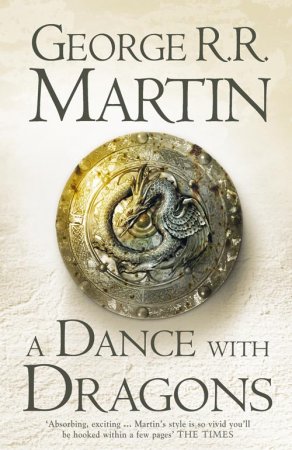 A Dance with Dragons
A Dance with Dragons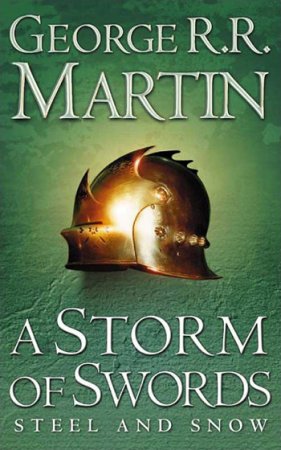 A Storm of Swords
A Storm of Swords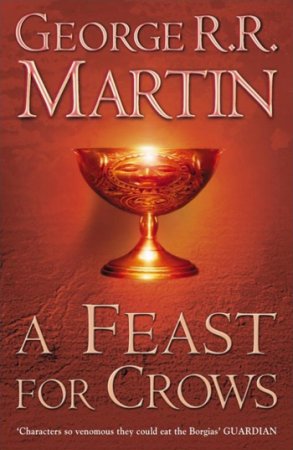 A Feast for Crows
A Feast for Crows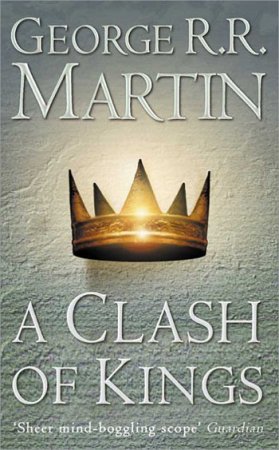 A Clash of Kings
A Clash of Kings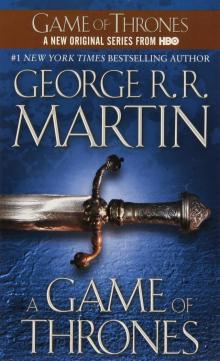 A Game of Thrones
A Game of Thrones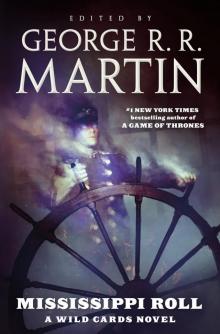 Mississippi Roll
Mississippi Roll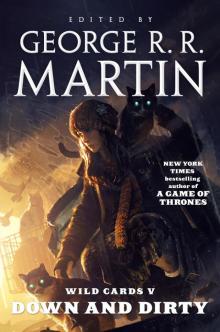 Wild Cards V: Down and Dirty
Wild Cards V: Down and Dirty Busted Flush
Busted Flush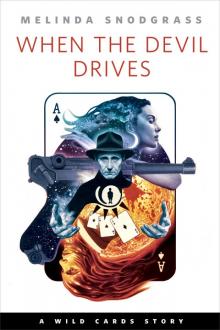 When the Devil Drives
When the Devil Drives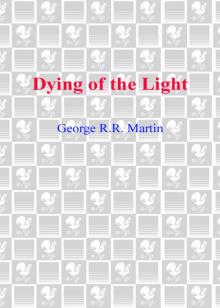 Dying of the Light
Dying of the Light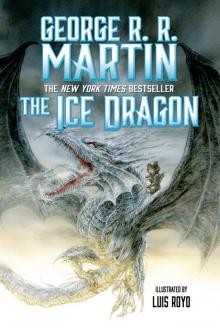 The Ice Dragon
The Ice Dragon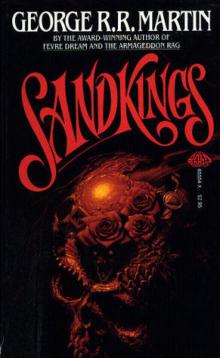 Sandkings
Sandkings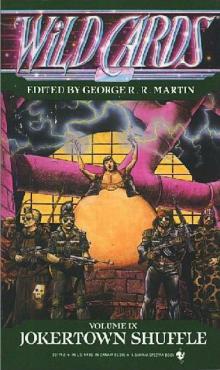 Jokertown Shuffle
Jokertown Shuffle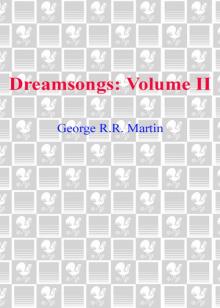 Dreamsongs. Volume II
Dreamsongs. Volume II Deuces Down
Deuces Down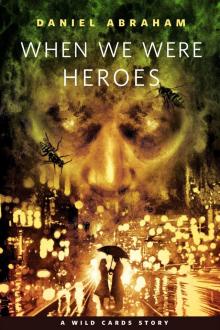 When We Were Heroes
When We Were Heroes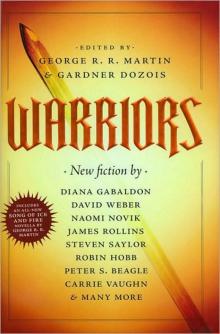 Warriors
Warriors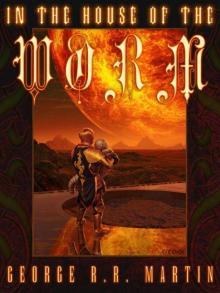 In the House of the Worm
In the House of the Worm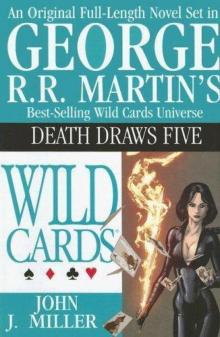 Death Draws Five
Death Draws Five Dreamsongs. Volume I
Dreamsongs. Volume I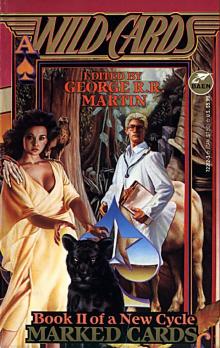 Marked Cards
Marked Cards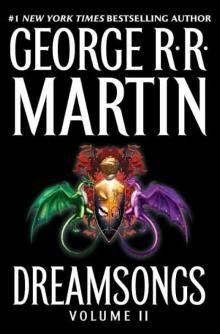 Dreamsongs
Dreamsongs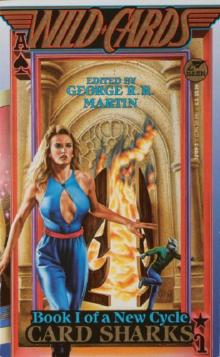 Card Sharks
Card Sharks Dangerous Women
Dangerous Women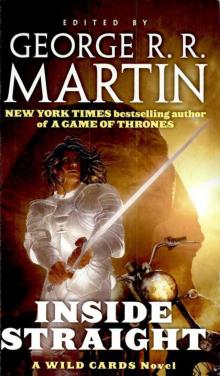 Inside Straight
Inside Straight Turn of the Cards
Turn of the Cards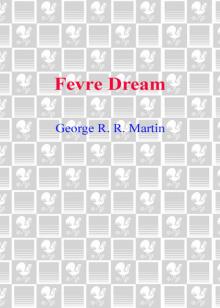 Fevre Dream
Fevre Dream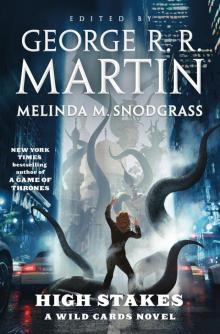 High Stakes: A Wild Cards Novel
High Stakes: A Wild Cards Novel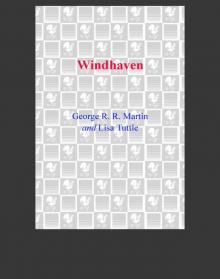 Windhaven
Windhaven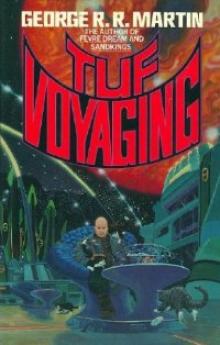 Tuf Voyaging
Tuf Voyaging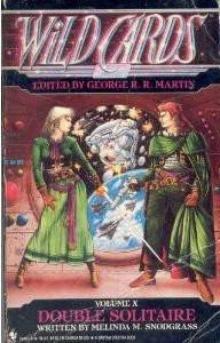 Double Solitaire
Double Solitaire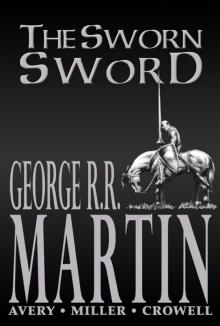 The Sworn Sword
The Sworn Sword Low Chicago
Low Chicago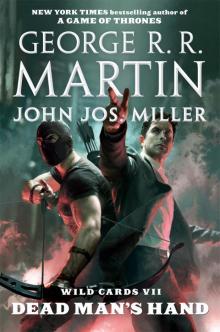 Dead Man's Hand
Dead Man's Hand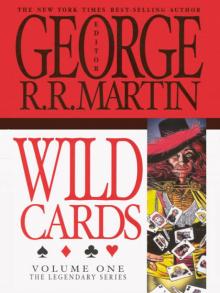 Wild Cards
Wild Cards Black Trump
Black Trump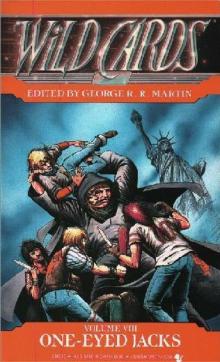 One Eyed Jacks
One Eyed Jacks Wild Cards: Aces Abroad
Wild Cards: Aces Abroad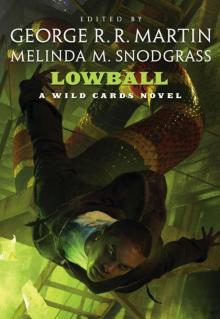 Lowball: A Wild Cards Novel
Lowball: A Wild Cards Novel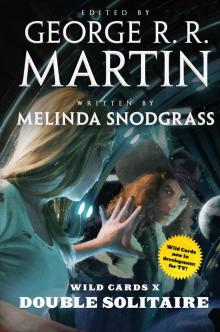 Double Solitaire (2019 Edition)
Double Solitaire (2019 Edition) Dealer's Choice
Dealer's Choice Ace in the Hole
Ace in the Hole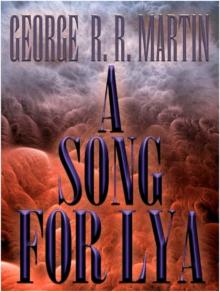 A Song for Lya: And Other Stories
A Song for Lya: And Other Stories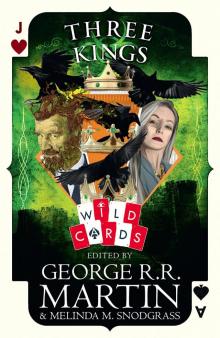 Three Kings
Three Kings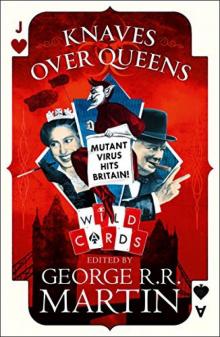 Knaves Over Queens
Knaves Over Queens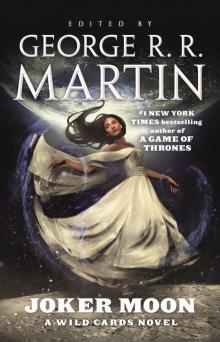 Joker Moon
Joker Moon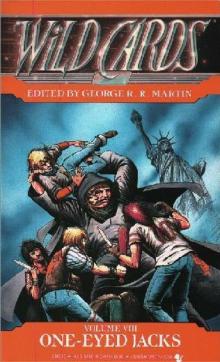 One Eyed Jacks wc-8
One Eyed Jacks wc-8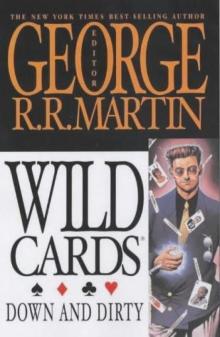 Down And Dirty wc-5
Down And Dirty wc-5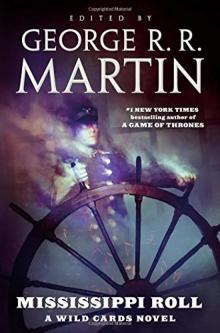 Mississippi Roll_A Wild Cards Novel
Mississippi Roll_A Wild Cards Novel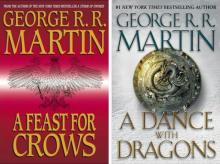 A Feast for Dragons
A Feast for Dragons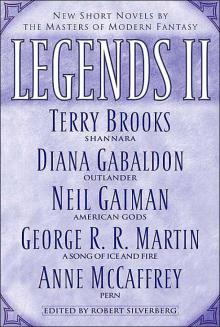 The Sworn Sword ttodae-2
The Sworn Sword ttodae-2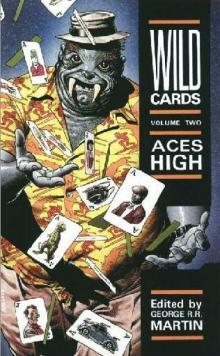 Aces High wc-2
Aces High wc-2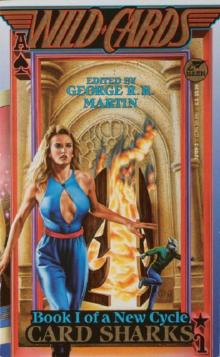 Wild Cards 13 : Card Sharks
Wild Cards 13 : Card Sharks Way of the Wizard
Way of the Wizard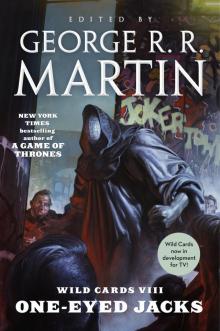 Wild Cards VIII: One-Eyed Jacks
Wild Cards VIII: One-Eyed Jacks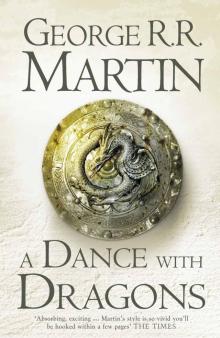 A Dance With Dragons: Book 5 of A Song of Ice and Fire (Song of Ice & Fire 5)
A Dance With Dragons: Book 5 of A Song of Ice and Fire (Song of Ice & Fire 5)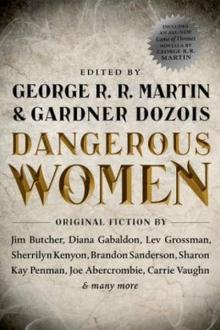 The Princess and The Queen, Or, The Blacks and The Greens (a song of ice and fire)
The Princess and The Queen, Or, The Blacks and The Greens (a song of ice and fire)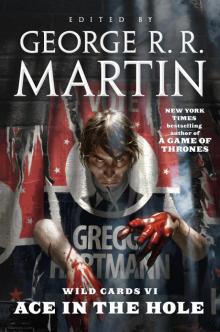 Wild Cards VI--Ace in the Hole
Wild Cards VI--Ace in the Hole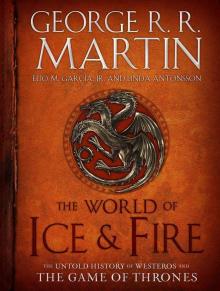 The World of Ice & Fire: The Untold History of Westeros and the Game of Thrones (A Song of Ice and Fire)
The World of Ice & Fire: The Untold History of Westeros and the Game of Thrones (A Song of Ice and Fire)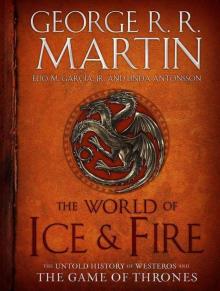 The World of Ice & Fire: The Untold History of Westeros and the Game of Thrones
The World of Ice & Fire: The Untold History of Westeros and the Game of Thrones Busted Flush wc-19
Busted Flush wc-19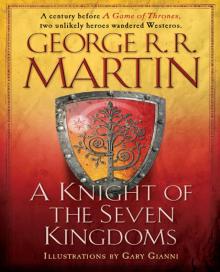 A Knight of the Seven Kingdoms
A Knight of the Seven Kingdoms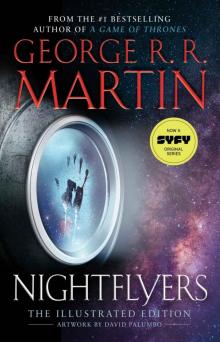 Nightflyers: The Illustrated Edition
Nightflyers: The Illustrated Edition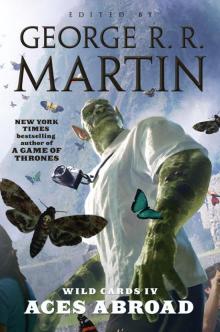 Wild Cards IV
Wild Cards IV Portraits of His Children
Portraits of His Children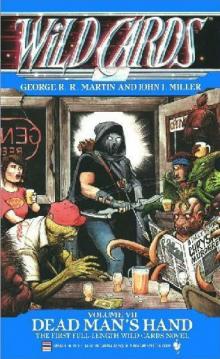 Dead Mans Hand wc-7
Dead Mans Hand wc-7 Jokers Wild wc-3
Jokers Wild wc-3 The Lonely Songs of Laren Dorr
The Lonely Songs of Laren Dorr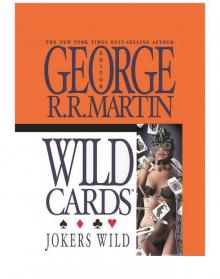 Wild Cards III: Jokers Wild
Wild Cards III: Jokers Wild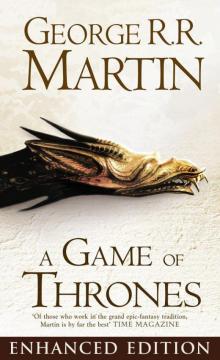 A Game of Thrones Enhanced Edition
A Game of Thrones Enhanced Edition Nightflyers & Other Stories
Nightflyers & Other Stories Armageddon Rag
Armageddon Rag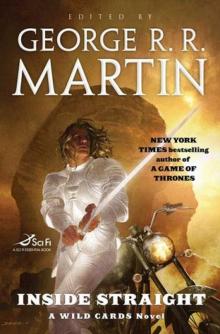 Wild Cards: Inside Straight
Wild Cards: Inside Straight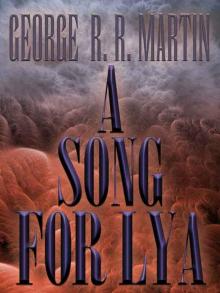 A Song for Lya
A Song for Lya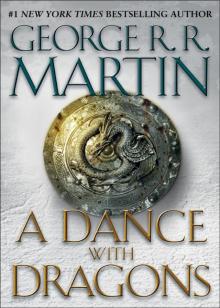 A Dance with Dragons: A Song of Ice and Fire: Book Five
A Dance with Dragons: A Song of Ice and Fire: Book Five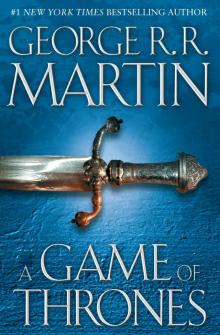 Song of Fire & Ice 01 - A Game of Thrones
Song of Fire & Ice 01 - A Game of Thrones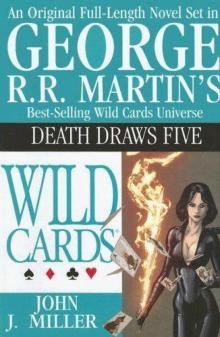 Death Draws Five wc-17
Death Draws Five wc-17 Turn of the Cards w-12
Turn of the Cards w-12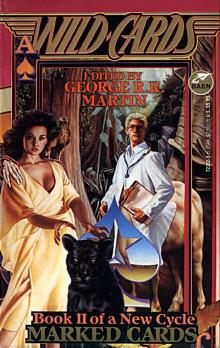 Wild Cards 14 - Marked Cards
Wild Cards 14 - Marked Cards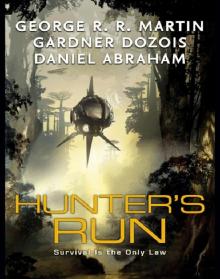 Hunter's Run
Hunter's Run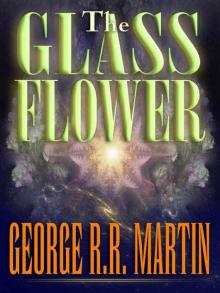 The Glass Flower
The Glass Flower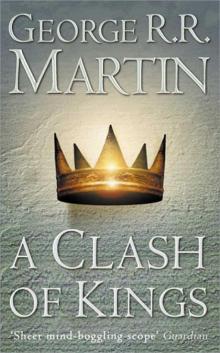 A Clash of Kings asoiaf-2
A Clash of Kings asoiaf-2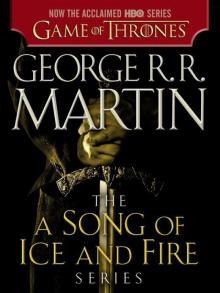 A Game of Thrones 5-Book Bundle: A Song of Ice and Fire Series: A Game of Thrones, A Clash of Kings, A Storm of Swords, A Feast for Crows, and A Dance with Dragons (Song of Ice & Fire)
A Game of Thrones 5-Book Bundle: A Song of Ice and Fire Series: A Game of Thrones, A Clash of Kings, A Storm of Swords, A Feast for Crows, and A Dance with Dragons (Song of Ice & Fire)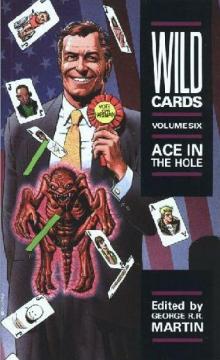 Ace In The Hole wc-6
Ace In The Hole wc-6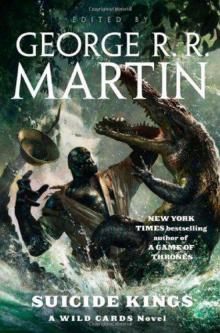 Suicide Kings wc-20
Suicide Kings wc-20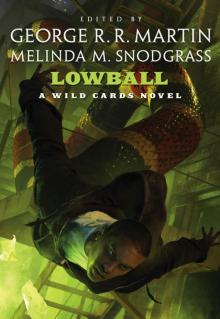 Lowball
Lowball Aces Abroad wc-4
Aces Abroad wc-4 George R. R. Martin's a Game of Thrones 4-Book Bundle
George R. R. Martin's a Game of Thrones 4-Book Bundle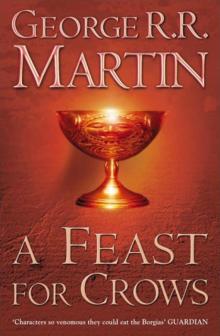 A Feast for Crows asoiaf-4
A Feast for Crows asoiaf-4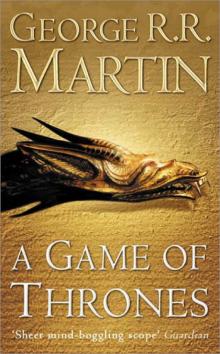 A Game of Thrones asoiaf-1
A Game of Thrones asoiaf-1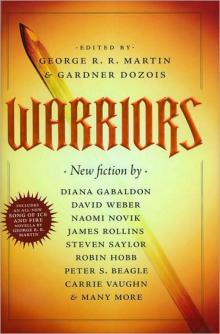 The Mystery Knight ttodae-3
The Mystery Knight ttodae-3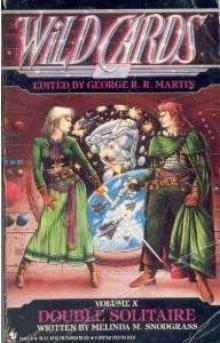 Double Solitaire w-10
Double Solitaire w-10 Wild Cards 15 - Black Trump
Wild Cards 15 - Black Trump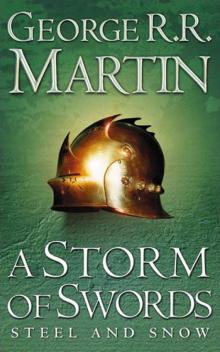 A Storm of Swords asoiaf-3
A Storm of Swords asoiaf-3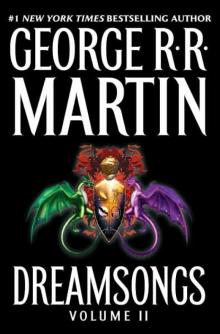 The Hedge Knight ttodae-1
The Hedge Knight ttodae-1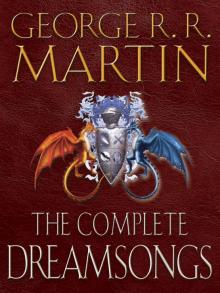 Dreamsongs 2-Book Bundle
Dreamsongs 2-Book Bundle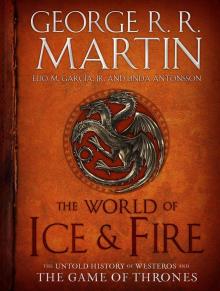 The World of Ice & Fire
The World of Ice & Fire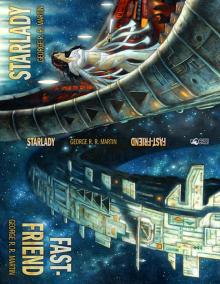 Starlady & Fast-Friend
Starlady & Fast-Friend Old Mars
Old Mars Fantasy For Good: A Charitable Anthology
Fantasy For Good: A Charitable Anthology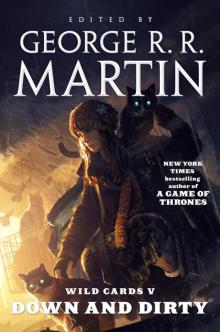 Wild Cards V
Wild Cards V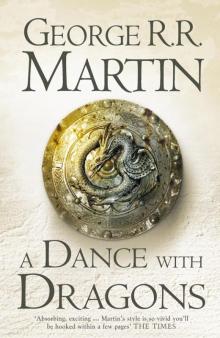 A Dance with Dragons asoiaf-5
A Dance with Dragons asoiaf-5 Dealer's Choice w-11
Dealer's Choice w-11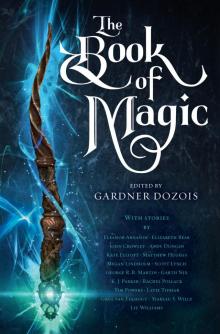 The Book of Magic
The Book of Magic A Game of Thrones 4-Book Bundle
A Game of Thrones 4-Book Bundle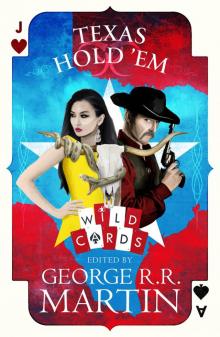 Texas Hold 'Em
Texas Hold 'Em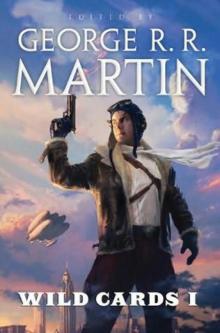 Wildcards wc-1
Wildcards wc-1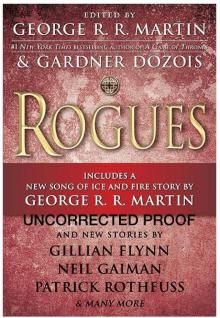 Rogues
Rogues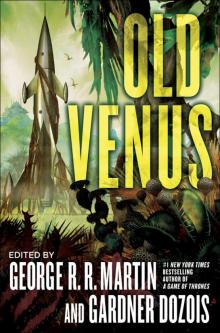 Old Venus
Old Venus